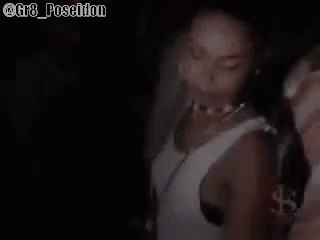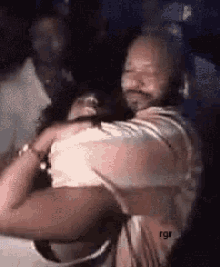
What people feared would happen has actually happened. The first two weeks of the 2011-12 NBA regular season has been cancelled.
And, if players and team owners don't agree on terms soon, more games are in jeopardy, possibly the entire 82-game season, NBA commissioner David Stern announced Monday night (October 10).
After several hours of negotiations over two days failed to produced a new labor deal, Stern announced the cancellation of the season's first two weeks, or 100 games.
According to NBA.com, Stern said both sides are "very far apart on virtually all issues" -- mostly over the salary cap structure than economics.
"With every day that goes by, I think we need to look at further reductions in what's left of the season," Stern added.
Both sides expect to remain in contact, but no additional formal talks have been scheduled.
"I started out by saying I'm sorry to report, and I'm sad to report that we've canceled the first two weeks," Stern said. "We certainly hoped it would never come to this. I think that both sides worked hard to get to a better solution. We think that we made very fair proposals. I'm sure the players think the same thing. But the gap is so significant that we just can't bridge it at this time."
Union president Derek Fisher says that while missing any games puts the season in jeopardy, he stressed this was a lockout, not a strike, and that it was the owners' decision not to be playing basketball.
"This is not where we choose to be," he said. "We're not at a place where a fair deal can be reached with the NBA."
NBA.com says that based on last year's average announced attendance leaguewide (just over 17,300 per game) and the average ticket cost last season, the now-canceled 100 games represent nearly $83 million in lost ticket sales -- before the first concession or souvenir is sold and before the first car pays to park. Season-ticket holders, however, get refunds, plus interest, for all canceled games.
Also with the lockout, the league risks alienating a fan base that sent the league's revenues and TV ratings soaring during the 2010-11 season.
This is just the second work stoppage in league history to bleed into the regular season in 1999. That season was shortened to just 50 games.
That season, however, the sides didn't agree until January 1999, just before the deadline for canceling that entire season.
Stay tuned...
And, if players and team owners don't agree on terms soon, more games are in jeopardy, possibly the entire 82-game season, NBA commissioner David Stern announced Monday night (October 10).
After several hours of negotiations over two days failed to produced a new labor deal, Stern announced the cancellation of the season's first two weeks, or 100 games.
According to NBA.com, Stern said both sides are "very far apart on virtually all issues" -- mostly over the salary cap structure than economics.
"With every day that goes by, I think we need to look at further reductions in what's left of the season," Stern added.
Both sides expect to remain in contact, but no additional formal talks have been scheduled.
"I started out by saying I'm sorry to report, and I'm sad to report that we've canceled the first two weeks," Stern said. "We certainly hoped it would never come to this. I think that both sides worked hard to get to a better solution. We think that we made very fair proposals. I'm sure the players think the same thing. But the gap is so significant that we just can't bridge it at this time."
Union president Derek Fisher says that while missing any games puts the season in jeopardy, he stressed this was a lockout, not a strike, and that it was the owners' decision not to be playing basketball.
"This is not where we choose to be," he said. "We're not at a place where a fair deal can be reached with the NBA."
NBA.com says that based on last year's average announced attendance leaguewide (just over 17,300 per game) and the average ticket cost last season, the now-canceled 100 games represent nearly $83 million in lost ticket sales -- before the first concession or souvenir is sold and before the first car pays to park. Season-ticket holders, however, get refunds, plus interest, for all canceled games.
Also with the lockout, the league risks alienating a fan base that sent the league's revenues and TV ratings soaring during the 2010-11 season.
This is just the second work stoppage in league history to bleed into the regular season in 1999. That season was shortened to just 50 games.
That season, however, the sides didn't agree until January 1999, just before the deadline for canceling that entire season.
Stay tuned...














.gif)



Comment